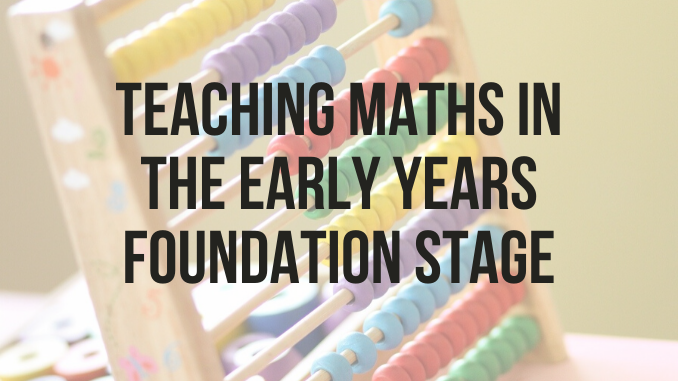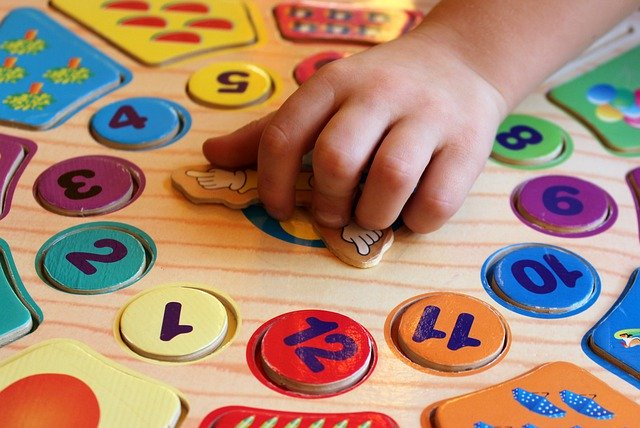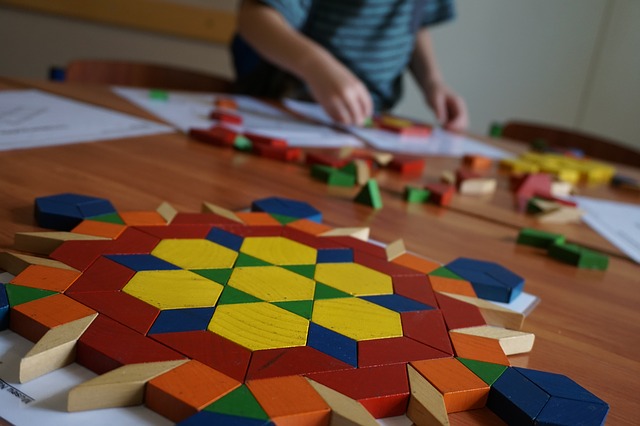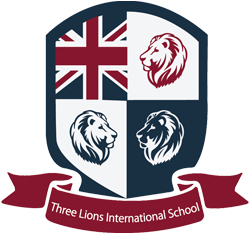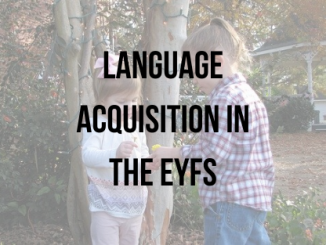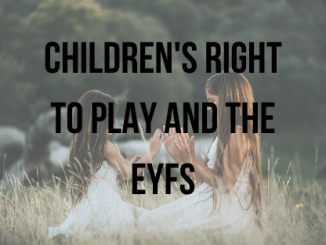It may seem to some outside the sector that there is little more to early maths than helping children learn to count effectively and have some emerging number knowledge. Whilst learning to count can indeed be a part of Early Maths there is much more to it than this. In fact, most of what constitutes ‘maths’ in the Early Years Foundation Stage is not what many adults would recognise as ‘maths’ and instead focuses on pre-number skills.
There may be a temptation in Nursery teaching to try to rush through this pre-number phase, as parents like to see their child learning to count and children can often recite numbers in the right order from a fairly young age but it’s important to recognise that this does not mean that children understand number or are ready to move on to number skills.
Before number skills can be taught it’s really important to develop pre number skills and an understanding of quantity, and if this is rushed by to move onto effective counting, often we encounter problems later on at a conceptual level when working with number. Basically, if we don’t spend enough time embedding this pre-number learning at nursery level, then trying to teach addition and subtraction later in the EYFS, for example in ‘Foundation 2’ or ‘Reception’, will be ineffective.
Why is maths important in the Early Years Foundation Stage?
Whilst the Early Years Foundation stage should not be seen as merely preparation for Key Stage One, numeracy skills measured at age five, prior to the start of primary school, are strong predictors of later academic achievement in both reading and maths (Duncan et al., 2007).
There is also a growing body of research which suggests that understanding the associations between number words, digits and quantities is strongly related to the development of numerical and mathematical abilities (Merkley and Ansari, 2016)
However, maths is not merely about number. Many teachers will tell you about young children who can recite number names in sequence up to 20 or sometimes even higher yet cannot produce 3 objects when instructed “give me/show me 3”
Early maths aims to move beyond rote learning and instead lay the foundations for real understanding of mathematical concepts.
What needs to be taught in the Early Years Foundation Stage?
Introducing maths to children from an early age helps to develop their understanding of problem solving and reasoning in a huge range of contexts. Underpinning children’s early mathematical understanding are 6 main areas;
- Cardinality and Counting: understanding that the cardinal value of a number refers to the quantity, or ‘howmanyness’ of things it represents.
- Comparison: knowing which numbers are worth more or less than each other, making observations about quantities.
- Composition: understanding that one number can be made up from (composed from) two or more smaller numbers
- Pattern: looking for and finding patterns and beginning to understand mathematical relationships
- Shape and Space: identifying shapes, understanding what happens when shapes move, or combine with other shapes and how space can be utilised.
- Measures: comparing different aspects such as length, weight and volume using everyday language as a precursor to using units of measurement to compare later on.
How should maths be taught in the Early Years Foundation Stage?
Whilst official policy may suggest that Early Years maths education should represent a balance between between play-based discovery and instruction of necessary content knowledge, some have argued that Early Years learning should focus on play and inquiry, because of evidence that direct instruction can limit children’s thinking and discovery (Bonawitza et al., 2011)
To many adults, the words Maths and Play have absolutely nothing to do with each other, this may be because of our own experience of early maths as something that we didn’t understand and couldn’t do. In strong contrast our own experiences of play as something that we loved.
However, Young children are learning maths all the time through a wide variety of play experiences. Puzzles, shape-sorters, cookery, water and sand play are all great examples of learning mathematics through play.
The guided play approach is reflected in the early maths curriculum of Montessori schools through the use of number rods and sandpaper digits for children to play with (Marshall, 2017) and in outdoor learning or ‘forest school’ through activities such as creating number symbol shapes from materials found outdoors (Robertson, 2017). The EYFS also encourages the provision of play-based maths experiences with its focus on enabling environments.
References:
Bonawitza E, Shaftob P, Gweon H, et al. (2011) The double-edged sword of pedagogy: Instruction limits spontaneous exploration and discovery. Cognition 120(3): 322–330.
Duncan G, Dowsett C, Claessens A, et al. (2007) School readiness and later achievement. Developmental Psychology 43(6): 1428–1446.
Marshall C (2017) Montessori education: A review of the evidence base. npj Science of Learning 2(1): 11. Available at: https://www.nature.com/articles/s41539-017-0012-7.
Merkley R and Ansari D (2016) Why numerical symbols count in the development of mathematical skills: evidence from brain and behavior. Current Opinion in Behavioral Sciences 10: 14–20.
Robertson J (2017) Messy Maths: A playful, Outdoor Approach for Early Years. Carmarthen: Crown House Publishing Ltd.

